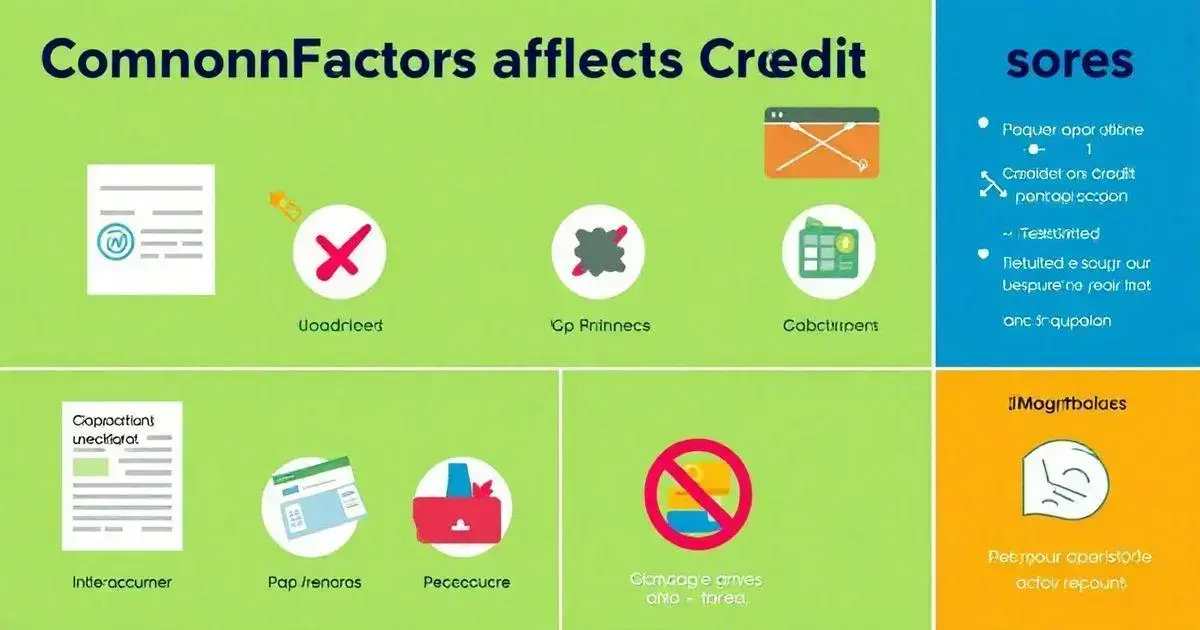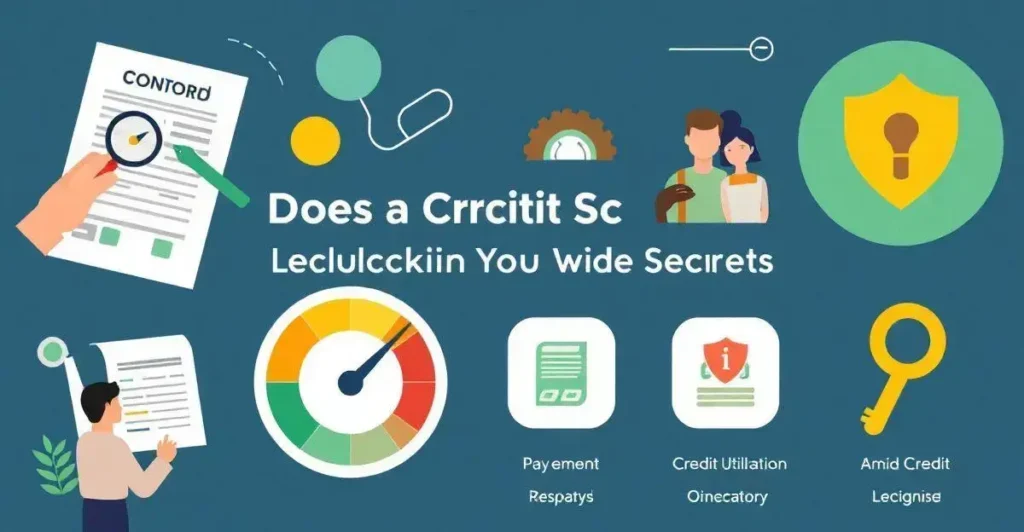Tips for increasing your credit score fast can be a game-changer when it comes to financial opportunities. Your credit score reflects your financial habits and plays a key role in securing better loan terms and interest rates.
Simple changes in your daily routine can have a big impact on your score. Actions like making on-time payments and managing credit wisely can set you on the path to financial success.
Ready to boost your credit score with quick and easy strategies? Keep reading to discover practical tips that can help you achieve your financial goals.
Understanding Credit Scores
Understanding credit scores is essential for making informed financial decisions. A credit score is a numerical value between 300 and 850 used to assess an individual’s creditworthiness.. This number reflects your creditworthiness, which lenders use to evaluate your ability to repay loans.
If you want to boost your financial health, learning Tips for increasing your credit score fast can give you the tools to improve your creditworthiness quickly.
Your credit score depends on a variety of elements, including how consistently you pay bills, the proportion of credit you’re using, the age of your credit accounts, the diversity of your credit types, and the number of recent credit applications.
Each factor plays a unique role in determining your score. For example, payment history accounts for about 35% of your score, making it the most significant factor. Late payments can severely impact your score, so it is crucial to pay your bills on time.
Credit utilization, which is the amount of credit you are using compared to your total available credit, makes up approximately 30% of your score. Keeping your utilization below 30% is recommended to show lenders that you are not overextending yourself financially.
Applying Tips for increasing your credit score fast can be especially helpful if you want to maintain low utilization and demonstrate financial responsibility.
Another important aspect is the length of your credit history, which contributes around 15% to your score. Established credit accounts can positively influence your score, so consider holding on to old credit accounts, even if you don’t use them frequently.
Different types of credit, including credit cards, mortgages, and installment loans, also impact your credit score. Maintaining a mixture of credit types can benefit your score and show lenders you can manage various accounts effectively.
Lastly, when you apply for new credit, lenders may perform a hard inquiry, which can temporarily decrease your score. It is wise to limit the number of credit applications you make within a short period.
By understanding these components of credit scores, you can take strategic steps to improve your credit standing, making it easier to secure loans with favorable terms in the future.
Common Factors Affecting Your Credit Score

Several factors can affect your credit score significantly. The most notable factor is your payment history, which makes up about 35% of your score. Lenders want to see that you pay your bills on time. Late payments, defaults, and collections can harm your score.
One way to ensure you stay on track is by following Tips for increasing your credit score fast to strengthen your financial habits. Another important element is credit utilization, accounting for around 30% of your score.
This is calculated by dividing your total credit card balances by your total credit limits. A lower ratio is better, with a recommendation to keep it below 30%. Applying Tips for increasing your credit score fast can help you manage credit utilization effectively.
The length of your credit history follows with 15%. This includes how long your accounts have been open. Longer accounts can signal reliability to lenders. Additionally, the types of credit you use make up 10% of your score. Having a mix of credit, like credit cards and loans, is beneficial.
Lastly, new credit inquiries can affect your score. When you apply for new credit, it results in a hard inquiry, which may temporarily lower your score. Too many inquiries can signal to lenders that you are in financial distress.
By understanding these factors, you can take the right steps to maintain or improve your credit score, enhancing your financial opportunities.
Quick Strategies to Improve Your Score
Improving your credit score quickly is important for future financial opportunities. Here are some quick strategies you can use to boost your score.
- Pay bills on time: Your payment history is the most critical factor. Set reminders or automatic payments to avoid late fees.
- Reduce credit utilization: Aim to keep your credit utilization below 30%. This means not using more than 30% of your available credit.
- Check your credit report: Review your credit report for any errors. Dispute inaccuracies to improve your score.
- Consider becoming an authorized user: If a family member has a good credit score, ask if you can be added to their account. Their positive credit history can help your score.
- Use secured credit cards: These can help you build credit if you are new or have a low score. Make sure to pay off the balance every month.
- Avoid new credit inquiries: Each application can lower your credit score. Limit the number of credit applications you make.
- Settle outstanding debts: If you have any collections or outstanding debts, pay them off to improve your standing.
Applying Tips for increasing your credit score fast can streamline your efforts and lead to quicker results. By consistently following these strategies and incorporating Tips for increasing your credit score fast into your financial plan, you’ll be better positioned to strengthen your creditworthiness efficiently.
How to Check Your Credit Report for Errors

Checking your credit report for errors is crucial for maintaining a good credit score. Follow these steps to review your report effectively:
- Obtain your credit report: Each year, you’re entitled to a free credit report from the three major credit bureaus: Experian, TransUnion, and Equifax. Access your report by visiting AnnualCreditReport.com.
- Review personal information: Start by checking that your personal details, like your name and address, are correct.
- Examine account information: Look closely at all listed accounts. Ensure that your payment history, balances, and credit limits are accurate.
- Check for inaccuracies: If you find errors, such as accounts that do not belong to you or incorrect balances, mark them for dispute.
- Dispute errors: Contact the credit bureau that issued the report to dispute any inaccuracies. Provide any supporting documents to help your case.
- Follow up: After disputing, keep track of your requests and follow up if necessary. The bureau must investigate and respond to your dispute, often within 30 days.
To further strengthen your credit, consider Tips for increasing your credit score fast as part of your strategy. Systematically applying these tips while ensuring your credit report is accurate will give you a strong foundation for improving your financial health. Incorporate Tips for increasing your credit score fast into your financial plan to unlock more opportunities.
The Role of Credit Utilization
Credit utilization is a key factor in determining your credit score. It refers to the amount of credit you are using compared to your total available credit. This ratio is important because it shows lenders how much of your available credit you are relying on.
- What is Credit Utilization? Credit utilization is calculated by dividing your total credit card balances by your total credit limits. A lower utilization ratio indicates that you are not overly reliant on credit.
- Why is it Important? Credit utilization accounts for about 30% of your credit score. Keeping it low shows that you can manage credit responsibly, which is favorable in the eyes of lenders. One of the best tips for increasing your credit score fast is to maintain low credit utilization by managing spending habits.
- Ideal Utilization Rate: It is generally recommended to keep your credit utilization below 30%. The lower your ratio, the better it is for your credit score. In fact, some experts suggest aiming for under 10% for the best scores.
- How to Manage Utilization: To maintain a healthy credit utilization rate, try to pay down existing debt, request a credit limit increase, or limit how much you charge on your credit cards. These actions are proven tips for increasing your credit score fast and can have a strong, positive impact on your financial health.
- Regular Monitoring: Regularly check your credit reports to keep track of your utilization ratio. This ensures you stay within a healthy range and can make adjustments as needed.
Understanding and managing your credit utilization effectively can lead to a significant improvement in your overall credit score.
Building Credit with Secured Credit Cards

Secured credit cards are a great way to build or improve your credit history. They work like regular credit cards, but with one key difference: you must deposit money as collateral. This deposit usually becomes your credit limit.
- How They Work: When you open a secured credit card, the lender requires you to provide a cash deposit, which secures the card. If you do not pay your balance, the lender can use your deposit to cover the debt.
- Benefits of Secured Credit Cards: These cards are easier to obtain for individuals with no credit history or poor credit. They help you establish a positive credit history through on-time payments and responsible usage. Following tips for increasing your credit score fast while using a secured credit card can amplify its benefits.
- Choosing the Right Card: When selecting a secured credit card, look for one with low fees and a reasonable interest rate. Some cards even allow you to upgrade to an unsecured card after a period of responsible usage.
- Building Credit: To effectively build credit, make small purchases and pay off your balance in full each month. This demonstrates good credit management and helps improve your credit score over time. Using tips for increasing your credit score fast can make this process even smoother.
- Monitor Your Credit: Keep track of your credit score while using a secured card. Many issuers provide free access to your credit score, which can help you see your progress over time.
By using a secured credit card responsibly, you can build a solid credit history and improve your chances of qualifying for higher credit limits and better rates in the future.
Long-term Habits for Sustained Credit Success
Building long-term habits is essential for sustained credit success. Here are some important practices to maintain a healthy credit score:
- Pay Bills on Time: Establish a routine of paying your bills on or before the due date. This creates a positive payment history, which is crucial for your credit score.
- Limit New Credit Applications: Avoid applying for multiple new credit accounts in a short time. Each application can cause a small dip in your score due to hard inquiries.
- Keep Old Accounts Open: The length of your credit history matters. Keeping older accounts active can positively influence your score as it reflects your credit experience.
- Regularly Monitor Your Credit: Stay informed about your credit score by checking it at least annually. This helps you catch errors or signs of identity theft early. Incorporating tips for increasing your credit score fast into your monitoring routine can accelerate improvement.
- Manage Debt Responsibly: Aim to pay down existing debts rather than accumulating new ones. A lower overall debt level improves your credit utilization ratio.
- Use Credit Responsibly: Charge small amounts to your credit cards and pay them off each month. This practice demonstrates to lenders that you can handle credit wisely. Additionally, following tips for increasing your credit score fast can strengthen these efforts.
- Educate Yourself: Stay informed about credit practices and changes in credit scoring models. Knowledge is power, and understanding how credit works can help you make better financial choices.
By following these long-term habits and applying tips for increasing your credit score fast, you can maintain a solid credit score and set yourself up for financial success in the future.
Tips for Increasing Your Credit Score Fast: Frequently Asked Questions
What is a credit score and why is it important?
A credit score is a three-digit figure that reflects your financial reliability and ability to manage debt. It is important as it affects your ability to get loans and the interest rates you will pay.
How can I improve my credit score quickly?
You can improve your credit score quickly by paying bills on time, reducing credit card balances, and checking your credit report for errors.
What factors affect my credit score the most?
The main factors include payment history, credit utilization, credit history length, types of credit, and recent inquiries.
What is credit utilization and how does it impact my score?
Credit utilization is the ratio of your current credit card balances to your credit limits. Keeping this ratio below 30% is recommended for a good credit score.
Are secured credit cards a good option for building credit?
Yes, secured credit cards are a good option for building credit. They require a cash deposit, which serves as your credit limit, making them easier to obtain.
What are some long-term habits to maintain a good credit score?
To maintain a good credit score, pay your bills on time, limit new credit applications, keep old accounts open, and monitor your credit regularly.

